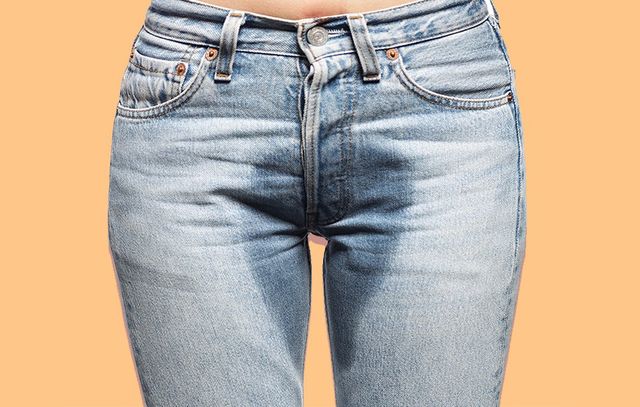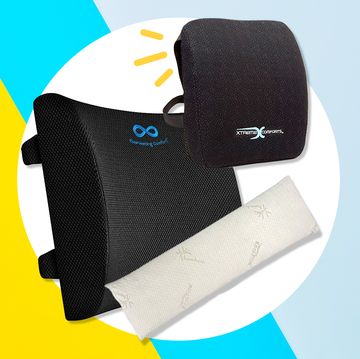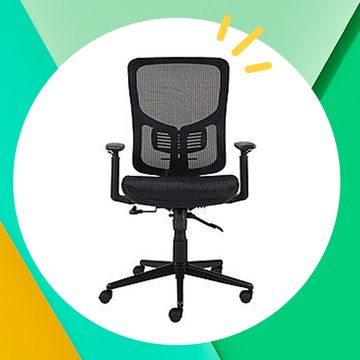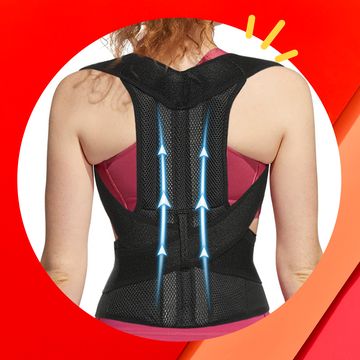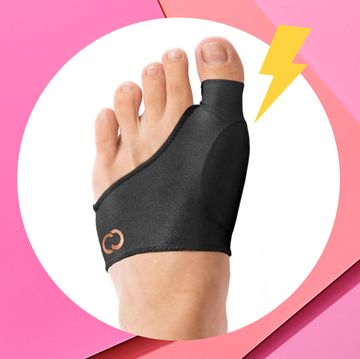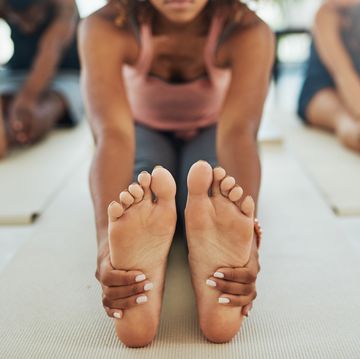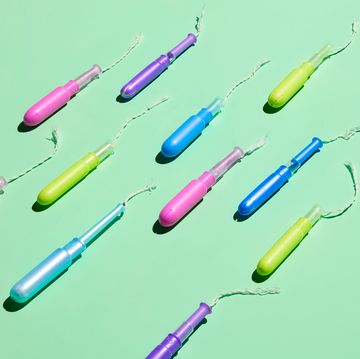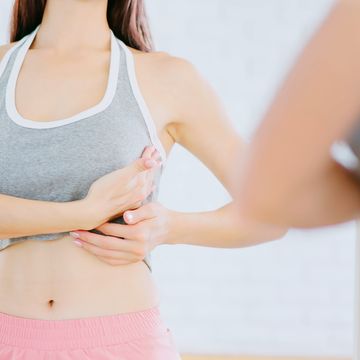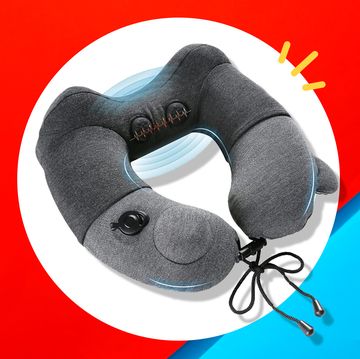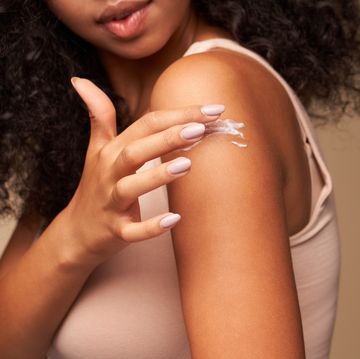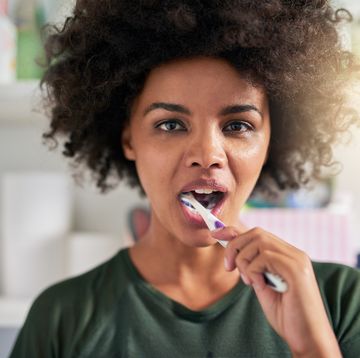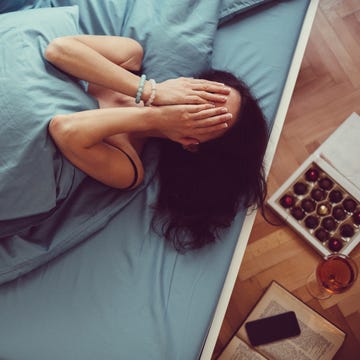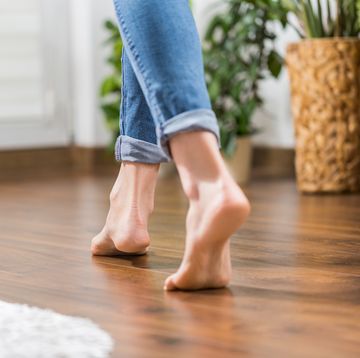No one wants to think about bladder leakage, but the reality is it’s an issue at least 10 percent of women between 19 and 30 years old face, according to a study published in the journal Female Pelvic Medicine & Reconstructive Surgery. That’s millions of women who are struggling to hold in their pee. And that sucks.
The medical name for leakage is incontinence, and there are two kinds that affect women: stress incontinence and urge incontinence. “With stress incontinence, there’s an increase in intra-abdominal pressure that causes stress on the bladder—like when someone coughs, runs, jumps, laughs, or sneezes,” explains Lisa Dabney, M.D., assistant professor of obstetrics, gynecology, and reproductive science at the Icahn School of Medicine at Mount Sinai. “Urge incontinence is when the detruser muscle, which is part of the bladder wall and normally doesn’t contract until your brain gives the okay, starts to squeeze randomly and push urine out.”
Neither situation is ideal, obviously. And while urge incontinence generally happens to women who are postmenopausal and stress incontinence typically occurs after women go through childbirth, younger women could—and do—deal with leakage issues. The good news: It’s not a medically-dangerous issue, and there are easy things you can do to prevent (and stop!) a leaky bladder.
There’s a reason people preach about kegels. They’re a critical exercise for strengthening the pelvic floor. And that’s crucial in dealing with incontinence. “At the bottom of your abdominal cavity, there’s a bowl of muscles that the urethra and vagina go through,” says Dabney. “If you can contract those muscles, you can close off the urethra—and control leaks.” It’s not about doing a certain number of squeezes per day, though, it’s about consistency. “I tell women to contract their pelvic floor muscles 10 times in the morning and 10 times in the evening,” she says. (Take your kegel training up a notch with Cloud Nine Kegel Training Balls from the Women's Health Boutique.)
Yes, your diet can affect how often you need the bathroom. The higher your body mass index, or BMI, the higher your risk of incontinence, according to a study published in the Journal of Urology. Extra weight puts additional pressure on the bladder, according to researchers, and that extra stress can lead to leaks. On the plus side, incontinence caused by weight gain is easy to reverse—another study published in the same journal reported that women who shed (and kept off) pounds decreased leakage by 65 percent after a year.
Related: 5 Signs Your Appendix Is About To Burst
Yes, you absolutely should drink your eight eight-ounce glasses of water per day. But thanks to the many benefits of proper hydration—clear skin, fewer headaches, more energy, a higher metabolism—some people tend to go overboard. “Everyone somehow thinks they’re going to get dehydrated, so [they] walk around the streets drinking three liters of water a day, which is completely unnecessary,” says Dabney. “If you drink enough fluid and wait too long to go to the bathroom, your bladder might contract when it’s not supposed to because it’s just too full.”
Watch a hot doctor explain why you're swollen:
Caffeine or alcohol are diuretics, which naturally make you pee more. Peeing more often is going to make that detruser muscle more irritated, which can lead to urge incontinence, says Dabney. “There are receptors in the bladder that tell the brain when the bladder’s full, but if the bladder is a little irritated, the brain will get messages that the bladder is full when it’s really not, and so it will start to contract, causing leaks.” Plus, if you’re drunk, your brain is less likely to interpret your body’s signals that it’s time to hit the bathroom.
“Orange juice, cranberry juice, grapefruit juice—all of those acidic drinks are very irritating to the bladder,” says Dabney. Do you drink cranberry juice to prevent or deal with UTIs? Stop. “If you have some sort of bladder condition like pain with urination or increased urinary frequency, it’s actually better to avoid cranberry juice,” she says. Instead of chugging the pink stuff, head to your doctor to find out what’s really going on—and how to fix it.
Related: 5 Body Odors You Should Never Ignore
Most adults are deficient in magnesium, an important nutrient involved in processes like protein synthesis, muscle and nerve function, and blood pressure regulation, according to the Centers for Disease Control and Prevention. Magnesium can also help deal with incontinence. In a study conducted at Tel Aviv University in Israel, more than 50 percent of the participants who took magnesium hydroxide pills twice a day reported less leakage. Women should consume 310 to 329 milligrams per day, says the CDC. Make sure you’re including magnesium-rich foods like spinach, beans, teff, and almonds in your daily diet.
At this point, no smoking should go without saying. But since people do still light up, you should know that cigarettes can also be irritable to the bladder. Plus, “everyone knows about lung cancer, but they don’t realize that smoking is a big risk factor for cervical cancer and bladder cancer.” Skip the cigs; your whole body will thank you.
Related: 6 Warning Signs Of Stomach Cancer That Have Nothing To Do With Pain
A lack of vitmain D can contribute to a weakened pelvic floor, according to research published in the journal Obstetrics & Gynecology. In the study, researchers linked low vitamin D levels in women 20 years or older to pelvic floor disorders including incontinence. If more vitamin D could improve muscle strength, that should be all the motivation you need to start taking a vitamin D supplement, which will probably help normalize your levels more quickly than even sunshine.

